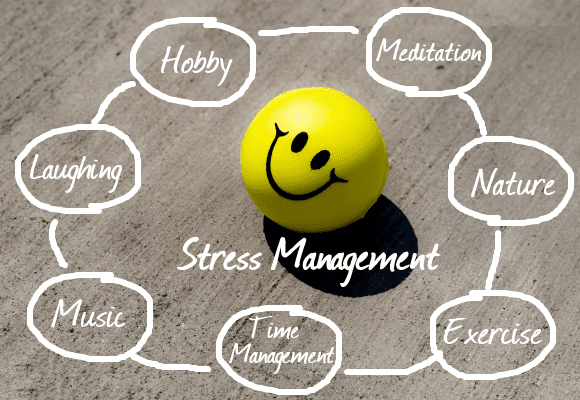We can get rid of some work tensions by attempting some or all of the following strategies.
Take regular breaks, switch to less stressful tasks and get away from the job (take a walk, climb stairs). If possible, share your workload if you’re handling too much. Asking for assistance doesn’t mean you’re incompetent. Instead, you’re a concerned worker who wishes to get the job done and meet deadlines.
Recognize your limits of energy and time and set priorities. You do not need to feel that you must take on more and more work until you’re at the breaking point. Setting limits and taking control of your work life starts with you.
Discuss your workload with your supervisor or co-worker. Outline what you feel you can reasonably handle and suggest alternatives for getting the rest of the work done. Agree on a workable arrangement. Learn how to say no when another assignment will endanger your ability to maintain control over your career and your life.
Concentrate on the positive aspects of your job: the hours, the people, the physical environment, the atmosphere, the actual work you’re doing, the type of company, the opportunities for promotion, or the chances for self-improvement and growth.
Be kind to yourself. Listen to your self-talk. Avoid laying a guilt trip on yourself; use the words “I would, or I could do such and such” instead of “I should …”. Counter each irrational and negative thought with a rational, positive response. For example, use: “I’ve succeeded at many things” rather than “I’m a failure.”.
“I’ll be prepared as best I can under the circumstances” instead of “I’m never going to be ready.”.
“I’ll handle myself with confidence” in place of “I’m going to fall apart.”.
Avoid comparing yourself to others and recognize your capabilities and limitations.
Believe in yourself; you can do it!
Use the technique of visioning or imaging to picture yourself coping with stressful situations. Many athletes do this as they prepare for competitions or sports events.
Seek out positive people who can give you emotional support. Talk to co-workers, family members and friends about your concerns. If these people are interested, let them help you brainstorm ideas with you for making changes and improvements.
Energize yourself. Regular sleep, nutrition, physical exercise and recreation helps build our resistance.
Learn to relax. Have fun at work and away from it. Keep a sense of humour. Laughter is an incredible release from tension, so use it as often as you can.
Seek personal fulfillment outside the job. Pursue other interests and activities which give you a variety of enjoyments.
Live a balanced life by making time for work, family and play.
If you find you’re unable to cope with certain stressful work situations after trying many of the suggested tips, you may have to take other steps to change yourself or your work situation. You can consider some of the alternatives proposed in the next pages and Making Changes blog.
© Wordscapes® (David Turner). All Rights Reserved.




